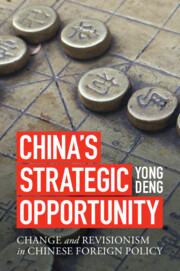China's emergence as a great power has been accompanied by the official rhetoric of the China Dream of Great Rejuvenation (weida fuxing 伟大复兴). Although there are conflicting views among academics and political elites about the exact content of the China Dream, one of its features is the nostalgia for China's past and its five-thousand-year-old civilization. Xi Jinping's current rhetoric of a China Dream of Great Rejuvenation uses a reinvented history as an asset for the future, linking China's natural progress as a global power with a selective re-reading of its millennial history. While much existing literature already discusses China's Great Rejuvenation, this article looks more specifically at the role of historical memory and deconstructs the key interconnected components that support Xi's rhetoric, namely, the chosen trauma, glory, and amnesia. The conclusion offers some general remarks about the effect of this rhetoric on China's domestic and foreign policy and some of the risks that accompany it. This article contributes to the debates on the influence of memory in International Relations (IR), showing how constructed memories of history can significantly impact both national identity and foreign policy.


